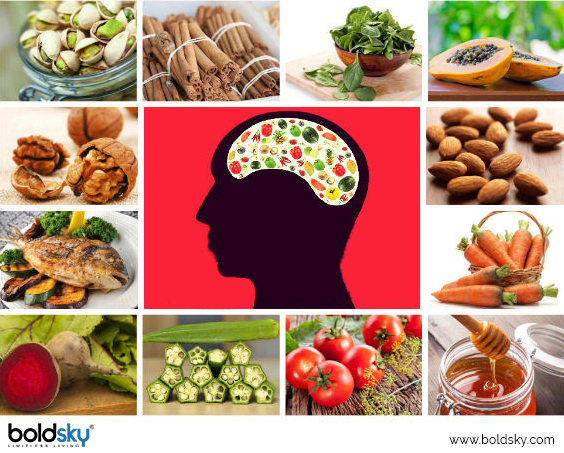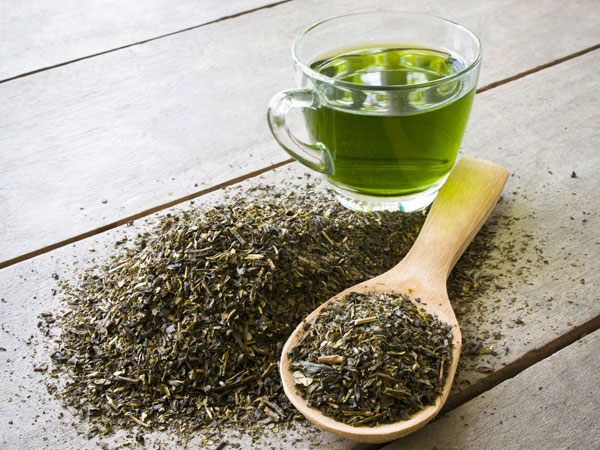Just In
- 8 hrs ago

- 9 hrs ago

- 11 hrs ago

- 12 hrs ago

Don't Miss
- Movies
 Nayanthara's Remuneration Touches New High; Becomes First South Actress To Charge Rs 10 Crore & Here's Why...
Nayanthara's Remuneration Touches New High; Becomes First South Actress To Charge Rs 10 Crore & Here's Why... - Finance
 1:10 Split, Rs 51 Dividend: Accumulate Tata Stock, TP Rs 170; Big Update On £1.25 Bn Investment
1:10 Split, Rs 51 Dividend: Accumulate Tata Stock, TP Rs 170; Big Update On £1.25 Bn Investment - News
 Harvey Weinstein's Conviction Overturned, Netizens Angered Over Elite Privilege
Harvey Weinstein's Conviction Overturned, Netizens Angered Over Elite Privilege - Sports
 T20 World Cup 2024: Waqar Younis Predicts Pakistan's 15-Man Squad; Drops This Express Pacer
T20 World Cup 2024: Waqar Younis Predicts Pakistan's 15-Man Squad; Drops This Express Pacer - Automobiles
 Royal Enfield Unveils Revolutionary Rentals & Tours Service: Check Out All Details Here
Royal Enfield Unveils Revolutionary Rentals & Tours Service: Check Out All Details Here - Technology
 Elon Musk’s X Is Launching a TV App Similar to YouTube for Watching Videos
Elon Musk’s X Is Launching a TV App Similar to YouTube for Watching Videos - Education
 AICTE introduces career portal for 3 million students, offering fully-sponsored trip to Silicon Valley
AICTE introduces career portal for 3 million students, offering fully-sponsored trip to Silicon Valley - Travel
 Escape to Kalimpong, Gangtok, and Darjeeling with IRCTC's Tour Package; Check Itinerary
Escape to Kalimpong, Gangtok, and Darjeeling with IRCTC's Tour Package; Check Itinerary
World Brain Day 2020: 10 Foods To Boost Your Memory
Every year 22 July marks World Brain Day. The brain is the most important organ of the body. It is responsible for the beating of your heart, releasing hormones, and regulating blood pressure. The brain is also one of the organs that use around 20% of the body's calories. This is the reason why your body requires enough fuel to maintain concentration throughout the day.
The brain needs certain nutrients like omega 3 fatty acids, antioxidants and other vitamins and minerals to provide energy and protect against brain diseases such as brain ageing and neurodegenerative disorders.

That's why to keep your brain running in proper working condition, consume foods that will not only improve your memory but also your concentration.
Foods To Boost Memory
1. Berries
Berries are packed with antioxidants which include catechin, quercetin, anthocyanin, and caffeic acid. A study shows that antioxidant compounds in berries have many positive effects on the brain including improving communication between brain cells, delaying age-related neurodegenerative diseases, boosting learning and memory [1] .
2. Avocados
Avocados are a good source of healthy monounsaturated fats which support brain function and lower the risk of cognitive decline. In addition, the presence of vitamin K and folate in avocados help improve cognitive function [2] . Other sources of monounsaturated fats are almonds, chia seeds, walnuts, etc.

3. Oily fish
Oily fishes such as mackerel, salmon, tuna, sardines, and herring are an excellent source of omega 3 fatty acids. Omega 3 fatty acids help improve the structure of brain cells called neurons. According to a study, people with high levels of omega 3 fats had increased blood flow in the brain [3] .
4. Nuts and seeds
Nuts and seeds are rich in vitamin E and omega 3 fatty acids which protect the brain cells from oxidative stress caused by free radicals. A study found that an increased intake of nuts and seeds has been linked to better brain function in older age [4] .
5. Broccoli
Broccoli is a good source of antioxidants and vitamin K. Vitamin K is a water-soluble vitamin which has been linked to improving memory in older adults, according to a 2016 study [5] .

6. Eggs
Eggs are another memory-boosting food which contains a good amount of B vitamins like vitamin B6, vitamin B12, and folic acid. A research study shows that these vitamins delay cognitive decline and prevent shrinking of the brain [6] .
7. Dark chocolate
Cocoa powder which is used for making dark chocolate contains flavonoids, antioxidants, and caffeine. The flavonoids in chocolate accumulate in the area of the brain which deals with memory and learning. Researchers say that these compounds increase memory power and slow down age-related mental decline [7] .
8. Coffee
Coffee contains caffeine and antioxidants which have positive effects on your brain. Caffeine increases brain alertness by blocking adenosine, a chemical that makes you sleepy. It also boosts serotonin, a feel-good neurotransmitter [8] , [9] .
9. Green tea
Green tea is another memory-boosting beverage that has been found to improve performance, alertness, memory and focus [10] . Green tea contains an amino acid called L-theanine that increases the activity of the neurotransmitter GABA, which aids in reducing anxiety and makes you feel relaxed [11] .

10. Oranges
Oranges are a great source of vitamin C, a preventive factor in mental decline. Vitamin C is a powerful antioxidant in fighting off free radicals that damage the brain cells. According to a study, consuming sufficient amounts of vitamin C rich foods can protect against age-related mental decline [12] .
To Conclude...
Apart from eating healthy memory-boosting foods, it is also essential to get enough sleep, keep your body hydrated, exercise daily, reduce stress, and alcohol intake.
- [1] Subash, S., Essa, M. M., Al-Adawi, S., Memon, M. A., Manivasagam, T., & Akbar, M. (2014). Neuroprotective effects of berry fruits on neurodegenerative diseases.Neural regeneration research,9(16), 1557–1566.
- [2] Miura, K., Stamler, J., Brown, I. J., Ueshima, H., Nakagawa, H., Sakurai, M., … INTERMAP Research Group (2013). Relationship of dietary monounsaturated fatty acids to blood pressure: the International Study of Macro/Micronutrients and Blood Pressure.Journal of hypertension,31(6), 1144–1150.
- [3] Amen, D. G., Harris, W. S., Kidd, P. M., Meysami, S., & Raji, C. A. (2017). Quantitative erythrocyte omega-3 EPA plus DHA levels are related to higher regional cerebral blood flow on brain SPECT.Journal of Alzheimer's Disease,58(4), 1189-1199.
- [4] O'Brien, J., Okereke, O., Devore, E., Rosner, B., Breteler, M., & Grodstein, F. (2014). Long-term intake of nuts in relation to cognitive function in older women.The journal of nutrition, health & aging,18(5), 496–502.
- [5] Soutif-Veillon, A., Ferland, G., Rolland, Y., Presse, N., Boucher, K., Féart, C., & Annweiler, C. (2016). Increased dietary vitamin K intake is associated with less severe subjective memory complaint among older adults.Maturitas,93, 131-136.
- [6] Smith, A. D., Smith, S. M., De Jager, C. A., Whitbread, P., Johnston, C., Agacinski, G., ... & Refsum, H. (2010). Homocysteine-lowering by B vitamins slows the rate of accelerated brain atrophy in mild cognitive impairment: a randomized controlled trial.PloS one,5(9), e12244.
- [7] Sokolov, A. N., Pavlova, M. A., Klosterhalfen, S., & Enck, P. (2013). Chocolate and the brain: neurobiological impact of cocoa flavanols on cognition and behavior.Neuroscience & Biobehavioral Reviews,37(10), 2445-2453.
- [8] Ribeiro, J. A., & Sebastiao, A. M. (2010). Caffeine and adenosine.Journal of Alzheimer's Disease,20(s1), S3-S15.
- [9] Ruxton, C. H. S. (2008). The impact of caffeine on mood, cognitive function, performance and hydration: a review of benefits and risks.Nutrition Bulletin,33(1), 15-25.
- [10] Dietz, C., & Dekker, M. (2017). Effect of green tea phytochemicals on mood and cognition.Current pharmaceutical design,23(19), 2876-2905.
- [11] Juneja, L. R., Chu, D. C., Okubo, T., Nagato, Y., & Yokogoshi, H. (1999). L-theanine—a unique amino acid of green tea and its relaxation effect in humans.Trends in Food Science & Technology,10(6-7), 199-204.
- [12] Harrison F. E. (2012). A critical review of vitamin C for the prevention of age-related cognitive decline and Alzheimer's disease.Journal of Alzheimer's disease : JAD,29(4), 711–726.
-
 healthWhy Are Dopamine Boosting Foods Good For Your Overall Health? Check This List To Add It Naturally To Your Diet
healthWhy Are Dopamine Boosting Foods Good For Your Overall Health? Check This List To Add It Naturally To Your Diet -
 healthKeep Your Cooking Method Under Check Because These 9 Foods Lose Their Nutrition When Overcooked
healthKeep Your Cooking Method Under Check Because These 9 Foods Lose Their Nutrition When Overcooked -
 healthIf You Are Consuming These Foods, You Are Unknowingly Following An Anti Pollution Diet
healthIf You Are Consuming These Foods, You Are Unknowingly Following An Anti Pollution Diet -
 healthIndigenous Delicacies: 5 Rare Indian Wild Foods That Are So Healthy You Should Try It!
healthIndigenous Delicacies: 5 Rare Indian Wild Foods That Are So Healthy You Should Try It! -
 wellness5 Asthma-Friendly Foods: Breathe Easy With These Foods For Better Lung Health
wellness5 Asthma-Friendly Foods: Breathe Easy With These Foods For Better Lung Health -
 healthHeart-Healthy Tips For Garba: Foods To Avoid And Tips For Safe Celebrations
healthHeart-Healthy Tips For Garba: Foods To Avoid And Tips For Safe Celebrations -
 insyncMan Creates World’s Hottest Chilli Pepper, Pepper X: How Does It Feel To Eat It?
insyncMan Creates World’s Hottest Chilli Pepper, Pepper X: How Does It Feel To Eat It? -
 healthCan Eating These Foods Trigger Tumour Growth?
healthCan Eating These Foods Trigger Tumour Growth? -
 healthChew These 4 Foods For A Defined Jawline
healthChew These 4 Foods For A Defined Jawline -
 wellnessWorld Anaesthesia Day 2023: Foods With Anaesthesia-Like Properties
wellnessWorld Anaesthesia Day 2023: Foods With Anaesthesia-Like Properties -
 healthWorld Cancer Day 2024: Exploring Anti-Cancer Properties Of Indian Herbs And Spices Which Are Natural Healers
healthWorld Cancer Day 2024: Exploring Anti-Cancer Properties Of Indian Herbs And Spices Which Are Natural Healers -
 wellnessFoods You Can Eat When You Have Diarrhoea (Loose Motion)
wellnessFoods You Can Eat When You Have Diarrhoea (Loose Motion)


 Click it and Unblock the Notifications
Click it and Unblock the Notifications



